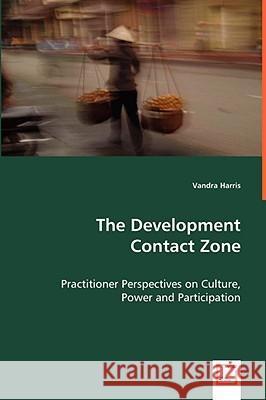The Development Contact Zone » książka
The Development Contact Zone
ISBN-13: 9783639057553 / Angielski / Miękka / 2008 / 188 str.
This book examines the function of culture and power in development praxis, by comparing the views of development workers in Cambodia and the Philippines with post-development theory and the participation approach to development. It explores whether development is culturally destructive, whether the current paradigm can deliver effective results, and what effect power relations have on these outcomes. Contrary to post-development claims, this book reveals that participatory development fosters cultural liberty by reinforcing collaborative cultural traits and strengthening communities to make choices about culture. In particular, practitioners desire a model of funding relationship that reflects their own practice, conforming to the paradigm of people underpinning the participatory approach to development. This book will be a valuable resource for policy-makers, practitioners and students of international development.
This book examines the function of culture and power in development praxis, by comparing the views of development workers in Cambodia and the Philippines with post-development theory and the participation approach to development. It explores whether development is culturally destructive, whether the current paradigm can deliver effective results, and what effect power relations have on these outcomes. Contrary to post-development claims, this book reveals that participatory development fosters cultural liberty by reinforcing collaborative cultural traits and strengthening communities to make choices about culture. In particular, practitioners desire a model of funding relationship that reflects their own practice, conforming to the paradigm of people underpinning the participatory approach to development. This book will be a valuable resource for policy-makers, practitioners and students of international development.











